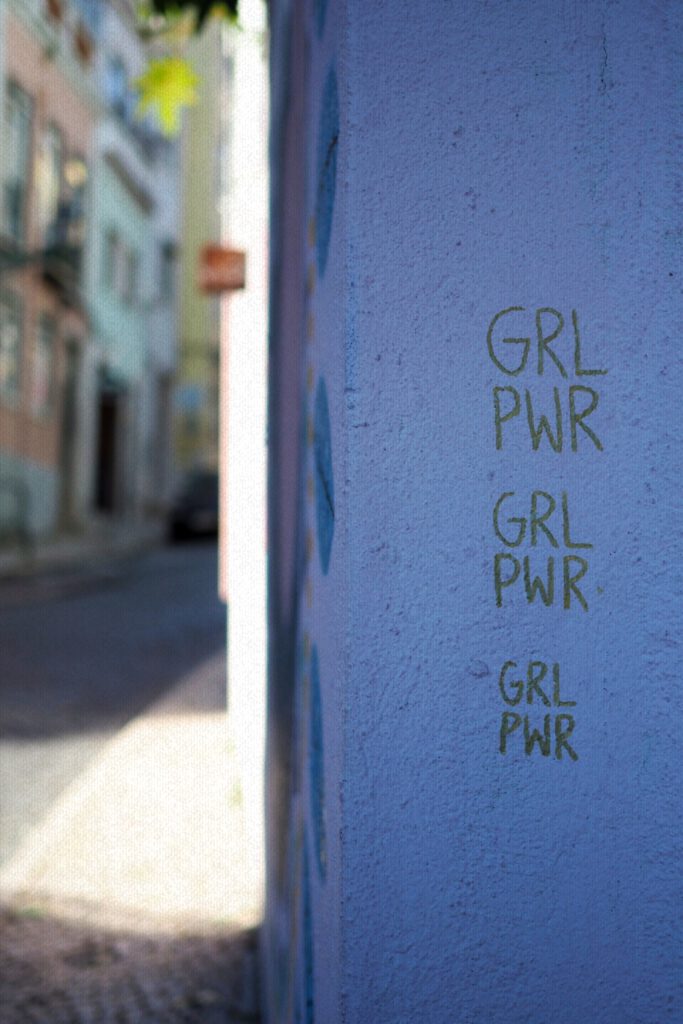EMGS Students’ Working Group on Intersectionality
The increased visibility of feminist struggles within and in relation to social movements all over the world has resulted in the resurgence of specific forms of feminist internationalisms. Since 2016, feminist movements in different locations have called for a general women*’s[1] strike on the 8th of March. The reclamation of the strike as a form of protest against patriarchal violence, exploitative labour structures, within and outside the wage labour market, and the demand for an unconditional European residence permit (E.A.S.T. 2021) – to make just one example[2] – has soon become a transnational movement.
We as the Working Group on Intersectionality, a student-led initiative in the EMGS Masters program, are inspired by historical and current transnational feminist struggles. The global dimension of feminist struggles has a great impact on our work as Global Studies students and has led us to look at smaller structures that surround us in our study program. In addition to the global feminist strike, we understand the 8th of March as a day of reflection on our understanding of feminism as an intersectional struggle, and a day to reflect upon how we can further incorporate feminist theory and practice in our study program and our daily lives.
Feminism always includes discussion and acknowledging differences, so we asked ourselves what feminism means to us. Feminism calls on all of us to radically challenge the reality of a world where gender is in itself and in relation to other categories, a means of oppression. In theory and in practice, feminism includes reflecting on power dynamics, standing together to demand justice and equality, creating awareness of how women* have been and often continue to be silenced, taking back women*’s power and combining struggles against every form of oppression. We are fascinated by the constantly evolving nature and diversity of feminist thought and practice, by its global reach and local specificity. Since feminism is relational and contextual, we had to ask ourselves what it means to incorporate feminism in our lives as Global Studies students.
In her 1965 book “Talking Back: Thinking Feminist, Thinking Black”, bell hooks writes:

“Feminist education -the feminist classroom- is and should be a place where there is a sense of struggle, where there is visible acknowledgment of the union of theory and practice, where we work together as teachers and students to overcome the estrangement and alienation that have become so much the norm in the contemporary university.”[3]
Reading bell hooks together, we have created a space for ourselves to think collectively about our ideas, personal experiences and thoughts regarding a feminist education. From this exchange, we started to envision the ideal feminist classroom. In line with bell hooks, we believe that a feminist classroom is not a fixed objective or something that is written in a syllabus. Instead, a feminist classroom is a process, where knowledge and its construction, the agents of knowledge production and reproduction are questioned.
For us, a feminist awareness should not be relegated to one single lesson within a course or to a specific discipline, but should be all-encompassing our education. By feminist awareness, we mean a classroom where both professors and students reflect upon their own epistemic and social location, their socialization, and the way those factors impact their choices.
Our feminist classroom would be a space in which everyone feels confident and comfortable to speak up, and where different ways of engaging in conversations are taken into consideration. Discussions in our feminist classroom would be facilitated according to the idea that those in power, in this case teachers, are given the choice to hold the space of the classroom in a way that fosters equality, rather than the reproduction of power structures. We believe that every person in the classroom should be given the option to express their opinion and to raise their voice, but this cannot happen until there is a conscious effort to recognise the gendered ways in which value is attributed.
For this 8th of March 2021, we want to invite everyone within the EMGS programme, staff, students and professors, to reflect together and in conversation with each other about ways in which we can make our vision for a feminist classroom a reality. Very often, the discussion about gender and feminism is still considered a matter that concerns women* only. On the contrary, we believe that this is a conversation that affects us all, regardless of social or gender identity. Moreover, we consider feminism to be part of an intersectional struggle for social justice, which encompasses every form of oppression, (colonial, racial, patriarchal and capitalist).
Let us all work and strive together towards a more just and equal world, and let us start where we can have a direct impact: in our classrooms.
[1] We use women with a star to remind ourselves that “women” is a socially constructed category that has different meanings in different social, cultural or geographical contexts. Moreover, we use it to make it clear that we are not referring solely to cis-women but to every subjectivity that identifies with the term and/or with people that do not identify with women* but are marginalized and silenced because of their gender (libere soggetività and/or disidencias).
[2] The Essential Strike Manifesto by E.A.S.T. is only one out of many transnational manifestos that have been published. See also “The Transnational 8th of March: Migrants Feminist Strike” by Transnational Migrants’ Coordination and the Manifesto towards the 8M Strike 2021 by Feministas Transfronterizas on Facebook (Last Accessed 04.03.21).
[3] bell hooks, 1965, Talking Back: Thinking Feminist, Thinking Black. Chapter 8, page 49.
Photo by Arièle Bonte on Unsplash
